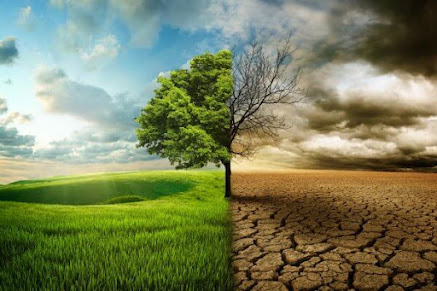
Global warming is a critical and pressing environmental issue that has garnered significant attention in recent decades. It refers to the long-term increase in Earth’s average surface temperature due to the buildup of certain gases in the atmosphere, known as greenhouse gases. These gases trap heat from the sun, preventing it from escaping back into space, and as a result, the planet warms up. While there are natural factors that influence the Earth’s climate, the current trend of global warming is primarily driven by human activities.
Introduction Of Global Warming About Nature And Points Of Global warming
The primary greenhouse gas responsible for global warming is carbon dioxide (CO2), which is released into the atmosphere through activities such as the burning of fossil fuels (coal, oil, and natural gas), deforestation, and industrial processes. Other significant greenhouse gases include methane (CH4), nitrous oxide (N2O), and water vapor (H2O).
The consequences of global warming are far-reaching and pose substantial challenges to the environment, ecosystems, and human society. Some of the key impacts and concerns associated with global warming include:
Rising Temperatures: Introduction of Global warming leads to an increase in average global temperatures, resulting in more frequent and severe heatwaves.
Melting Polar Ice and Glaciers: The warming climate causes the melting of polar ice caps and glaciers, contributing to rising sea levels
Rising Sea Levels: As ice melts and seawater expands due to higher temperatures, sea levels rise, which can lead to coastal erosion and increased risk of flooding in coastal areas.
Extreme Weather Events: Global warming is associated with an increase in the frequency and intensity of extreme weather events such as hurricanes, droughts, and heavy rainfall.
Ocean Acidification: Increased CO2 levels in the atmosphere also lead to higher CO2 concentrations in the oceans, causing ocean acidification, which can harm marine life, particularly coral reefs and shellfish.
Loss of Biodiversity: Changes in temperature and ecosystems can disrupt habitats and lead to the loss of biodiversity.
Impacts on Agriculture: Altered weather patterns and increased temperatures can affect crop yields and food production.
Health Impacts: Heat-related illnesses, the spread of diseases, and reduced air quality are some of the health risks associated with global warming.
Efforts to address Introduction of Global warming include international agreements such as the Paris Agreement, which aims to limit global temperature rise to well below 2 degrees Celsius above pre-industrial levels. Additionally, actions to reduce greenhouse gas emissions, transition to renewable energy sources, and implement sustainable land-use practices are crucial steps in mitigating the impacts of global warming and working toward a more sustainable future.





